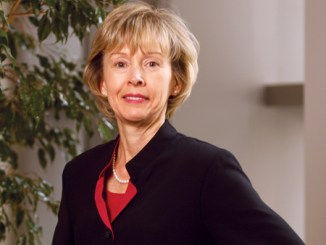
In 1999, Alice J. Lenihan, MPH, RD, LDN, responded to the North Carolina Dietetic Association's call for Special Olympics World Summer Games volunteers. Since then, the organization has been a big part of her life: she continued to volunteer for many years and eventually became a global clinical advisor for the organization's Healthy Athletes and Health Promotion programs. "Special Olympics athletes are inspiring individuals. Each time I meet an athlete I am inspired and energized by their interest in health, fitness and success in their sport," she says. "You can't help but want to do more."
What led to your career in nutrition and dietetics?
After my first "foods" course in college, I decided to enter the dietetics track. I had always been interested in foods, cultures and foods and cooking. Early in my career I found my way into public health and community nutrition. The opportunity to work with individuals and populations to promote health has always been my interest and passion.
Tell us about your work and how it fulfills a need in your community.
I work with a team of health professionals who provide consultation and technical support to the Special Olympics Healthy Athletes and Health Promotion programs. Healthy Athletes offers health screenings and education in seven areas. The Health Promotion program uses interactive educational tools and displays, motivational literature and demonstrations to heighten the awareness of athletes, reinforcing the need to improve and maintain an enhanced level of wellness and self-care. Nutrition and healthy eating is a cornerstone of the program.
How has your work made a difference in your community?
The work of the dietitians, nutritionists and other health professionals who have given their time and expertise to the Special Olympics Health Promotion program have made an impact globally on access to health care, information about healthy habits and health outcomes of individuals with intellectual disabilities. We are empowering these individuals by giving them the information to make healthy choices.
An example: A Special Olympics Southern California's floor hockey team, the "Riverside Mad Dogs", competed at the 2013 World Winter Games in the Republic of Korea. Preparation for the games motivated the team to adopt a healthy lifestyle … they lost more than 400 pounds leading up to World Games, and the team came home with a silver medal. While I was not responsible for working with the team, they benefited from many of our education materials and information given out at local Special Olympics events.
What do you find most rewarding about your efforts?
The Special Olympics Healthy Athletes Program has provided more than 1.4 million free health screening clinics in more than 100 countries — it offers health services and information to athletes in dire need. In the process, Special Olympics has become the largest global public health organization dedicated to serving people with intellectual disabilities.



